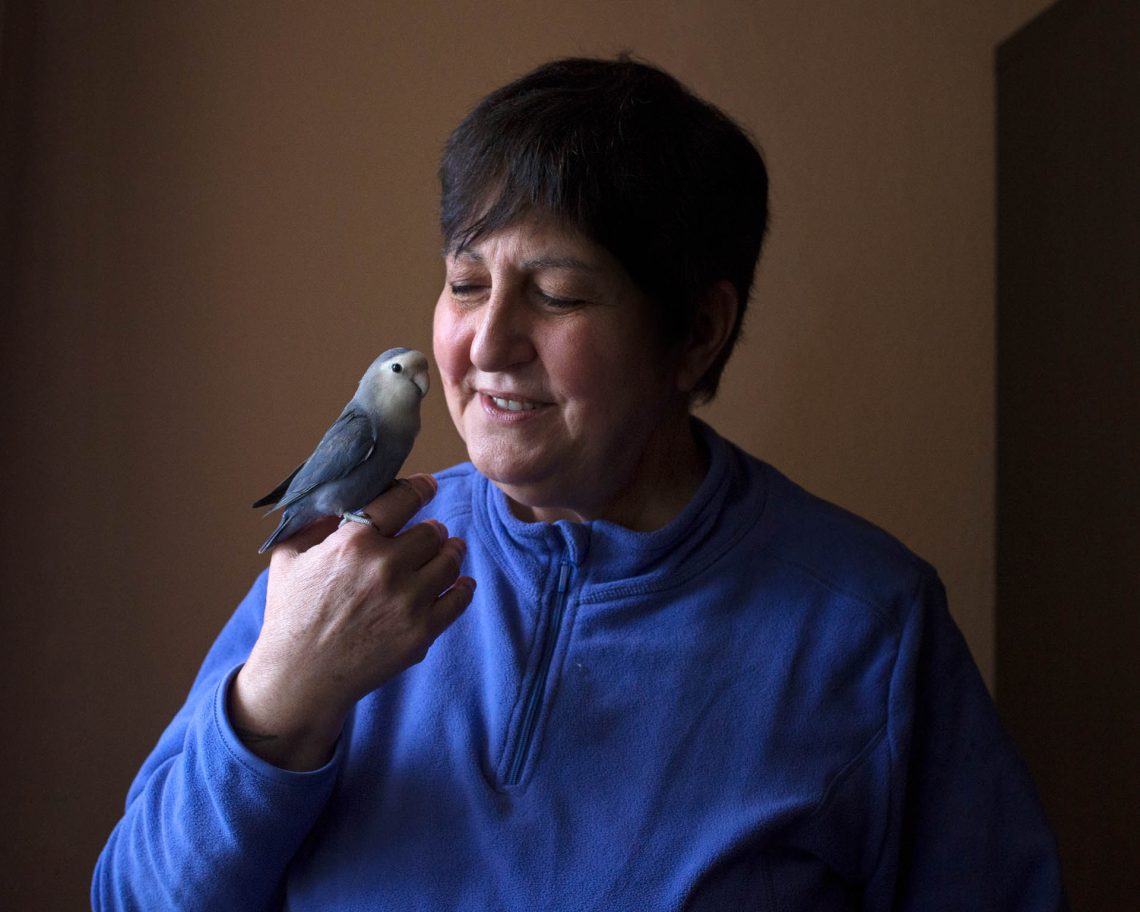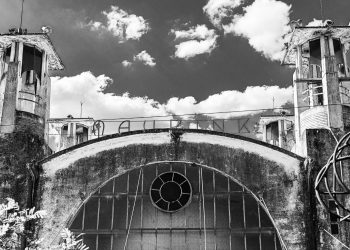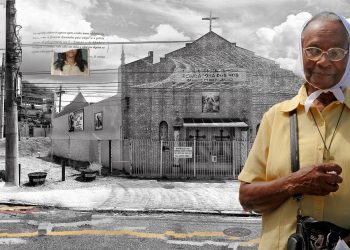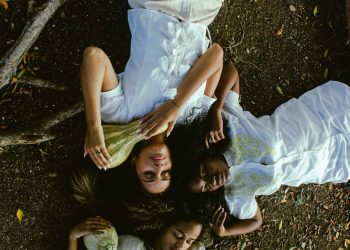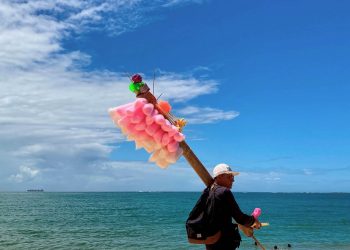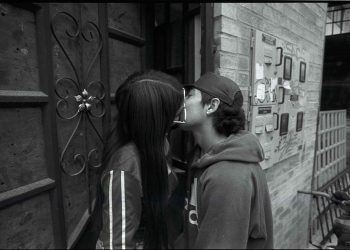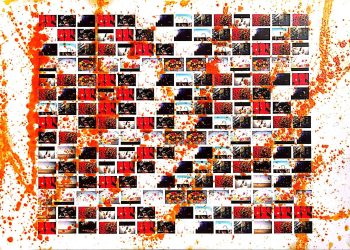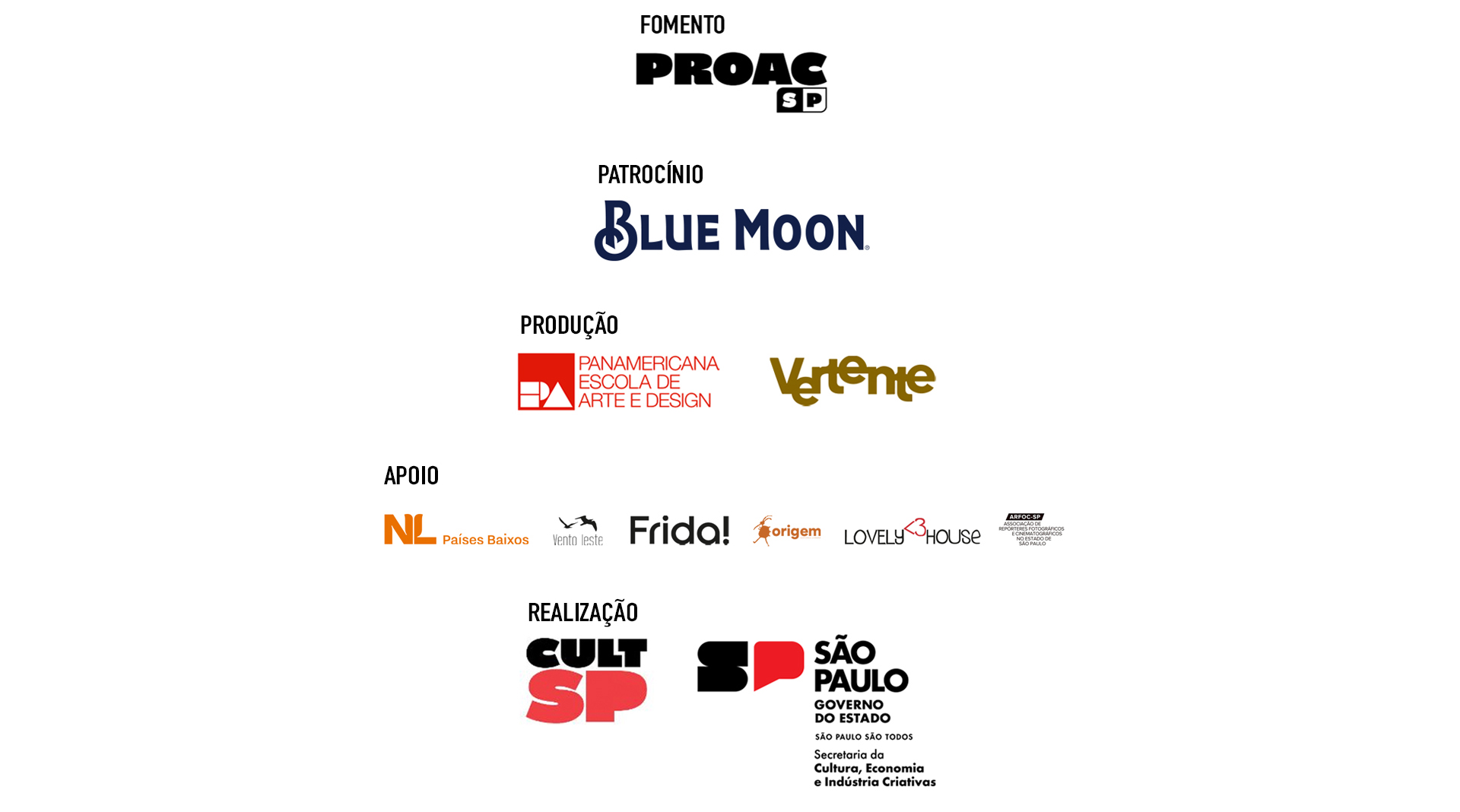Sou lésbica e não consegui falar com meus avós sobre mim, sobre quem verdadeiramente sou. Quem Me Dera Ter Saído do Armário nasce e começa aí, de uma mentira dolorosa que durou anos.
Quando, na adolescência, percebi que me atraía por mulheres, entendi como a orientação sexual das pessoas é frequentemente dada como certa pelos outros. Se revelar-se deveria ser um ato libertador, logo descobri o quão difícil pode ser expor uma parte da própria identidade a alguns – uma parte que ainda gera preconceito. Durante anos, carreguei o fardo de não poder dividir com meus avós a descoberta de meu lesbianismo, perdendo a chance de um entendimento mútuo. A falta dessa confissão gerou em mim a necessidade de autoredenção, um ato catártico que beneficiaria a mim e a outros.
Assim, como tributo indireto aos meus avós, comecei a explorar as experiências de pessoas que se assemelhavam a eles em idade, mas a mim em orientação sexual. Eis Quem Me Dera Ter Saído do Armário, um projeto de longo prazo em andamento, com o qual investigo o duplo tabu relacionado à homossexualidade e à velhice na Itália.
Os protagonistas deste trabalho são homens gays e mulheres lésbicas entre sessenta e noventa anos. Comecei a me conectar com eles aos 27 anos, em 2018, quando obtive seus contatos por indicação de conhecidos e alguns aplicativos de encontro. Após conversas iniciais por telefone, passei a viajar pela Itália para encontrar quem desejava compartilhar sua história. Nesse processo, capturei sorrisos, angústias, pensamentos, amores e desejos que raramente encontram voz. Fotografei essas pessoas em casais ou sozinhas, em seus lares, em cenas de verdadeira intimidade.
A partir de experiências compartilhadas – minhas e dos retratados – meu objetivo foi e segue sendo iluminar as vidas de pessoas gays e lésbicas na Itália contemporânea que vivenciam essa fase contraditória e fascinante ligada ao envelhecimento. Considerando as profundas diferenças culturais, sociais e econômicas entre o Norte e o Sul do país, busquei essas pessoas em tantas regiões quanto possível – razão pela qual viajei e continuo viajando por toda a Itália.
Este trabalho, com seu potencial de remediar os silêncios que sempre carregamos, fala do desejo de expor-se plenamente sem negar nenhuma parte da própria identidade: as palavras “sair do armário” no título não se referem apenas à sexualidade, mas também, e sobretudo, ao compartilhamento intergeracional das próprias experiências, vida e essência.
Traduzido com IA Deepseek
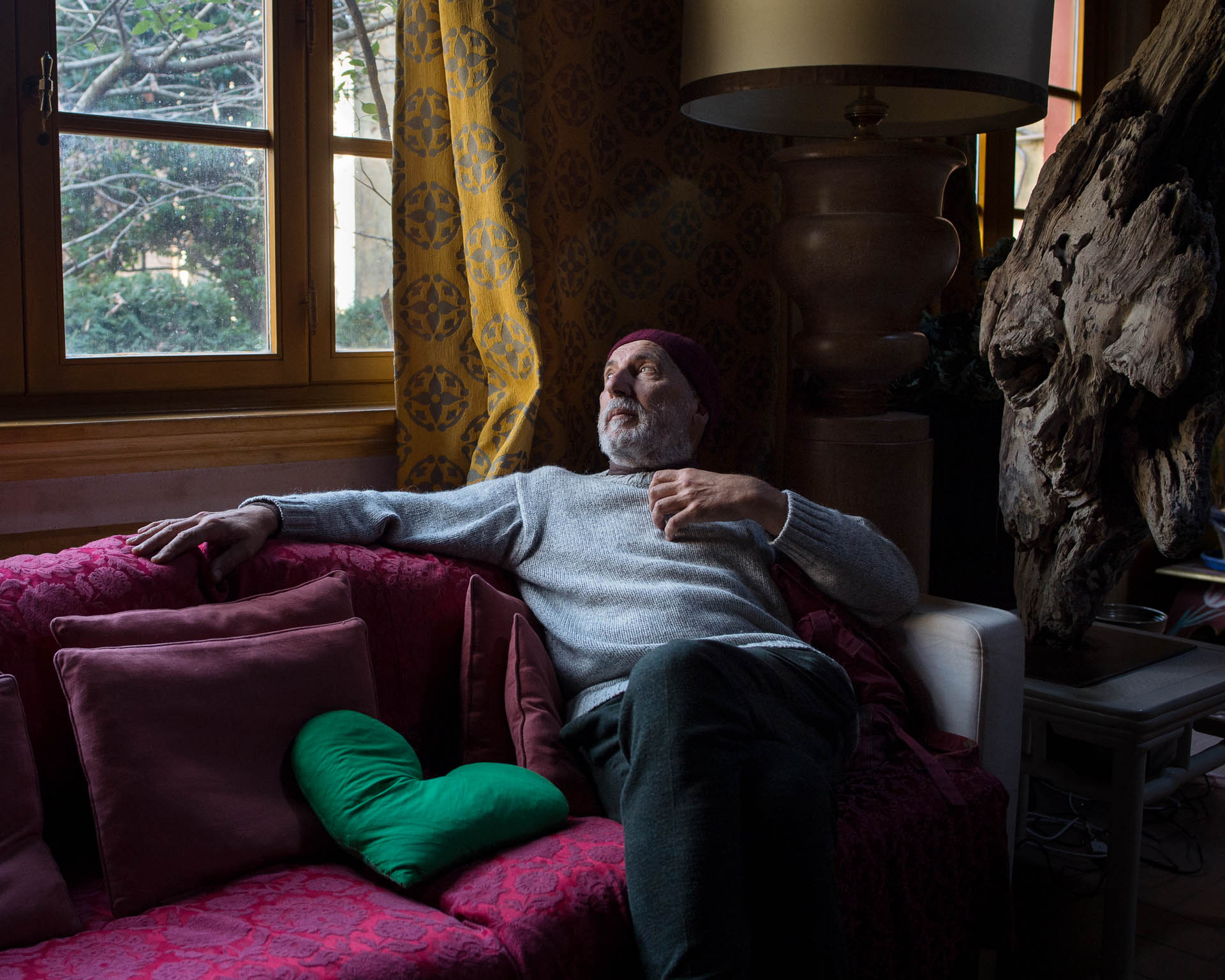
Umberto has been a great traveller since he was young: he wanted to explore new realities and travel throughout countries he had never visited. In the ‘70s he set off for India in order to meet Osho: it was the beginning of a very special trip which continues today, within him. He is vegetarian, almost vegan, loves nature, and for some time, he has dedicated himself to a new passion: photography. He enjoys photographing the stones which have been eroded over time or smoothened by the waterways, and the tree trunks which have been pulled onto the beach by the high waves.
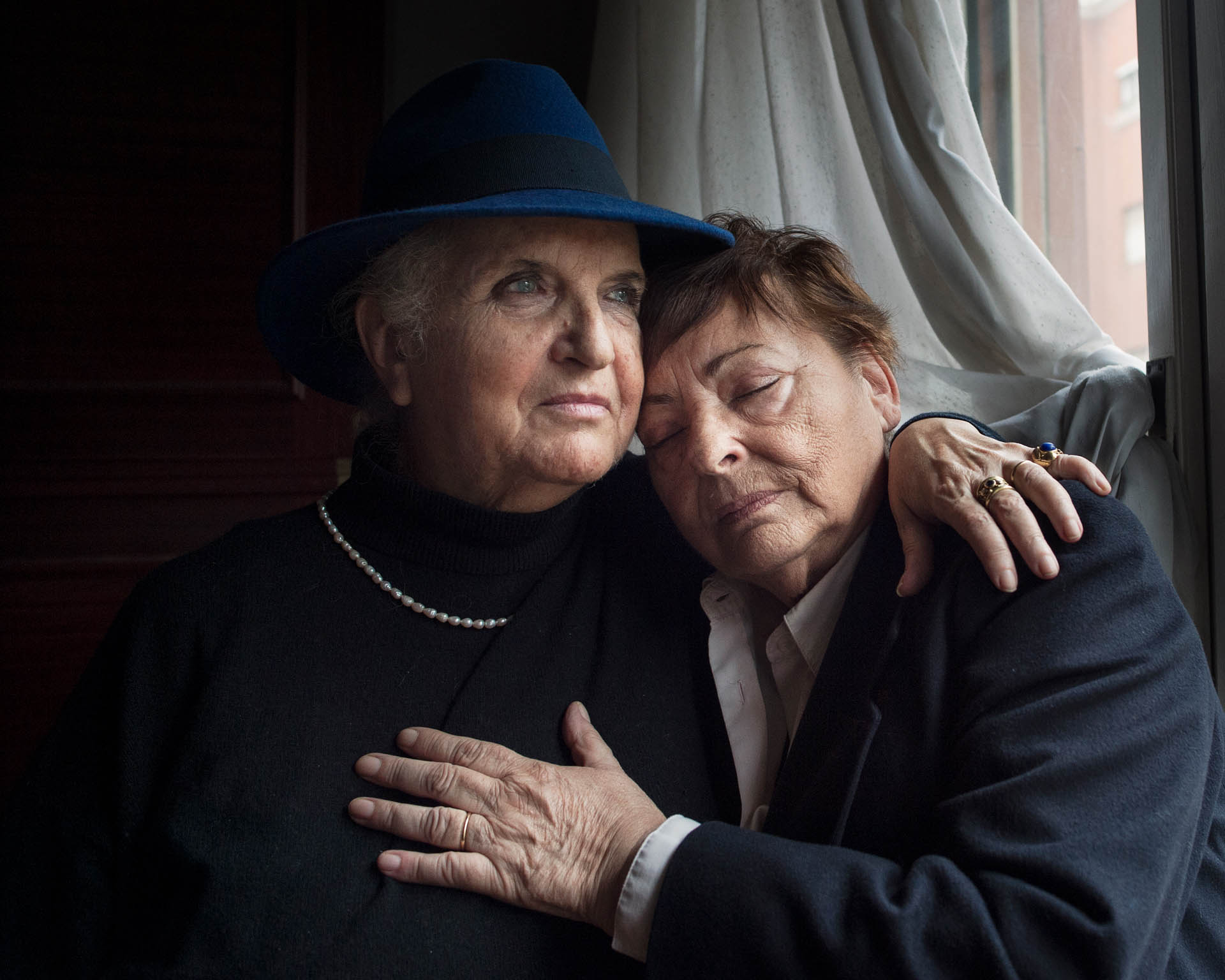
Maria Laura and Lidia have known each other for 17 years. Their love blossomed at a mature age, but it struck like a classic bolt of lightning. It was Lidia who won over Maria Laura: on top of a relentless courting full of sweet nothings and poetry, she wrote a dedication to Laura one night on the wall in front of her house: “Laura, I am passionately and hopelessly in love with you”. From that day on, they began dating, and soon after they became an official couple. Recently, they got married in a civil union.
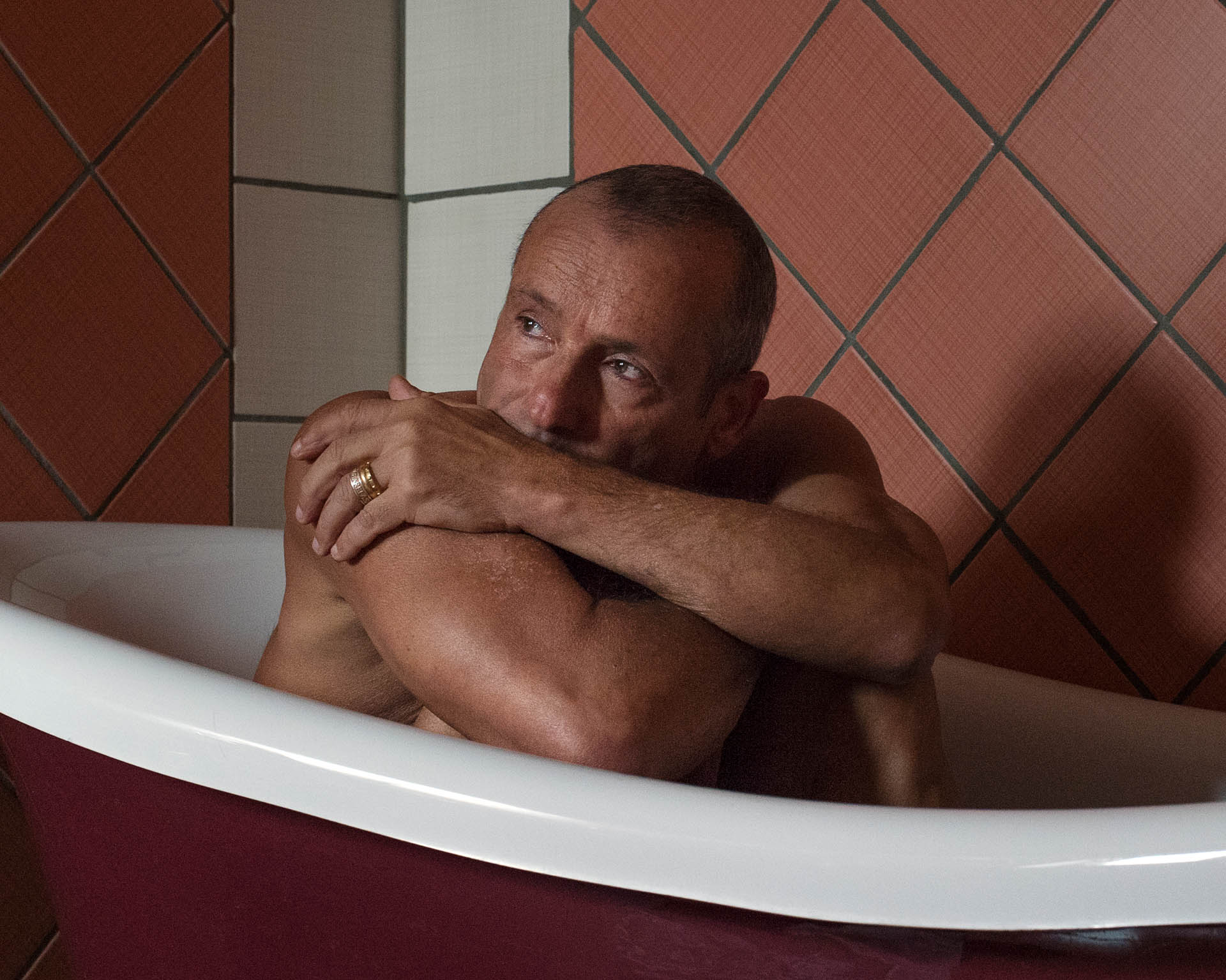
Pasquale was born in Naples. He had a difficult childhood, full of misery and violence. As well as that, he was denied the opportunity to attend school. Despite that, he was able to redeem himself over the years: he discovered that he was gay, and he came into contact with the homosexual scene in Naples. He began writing and doing theatre, letting himself get inspired by the “street” and its stories. In time, he became a playwright and also worked as a journalist. His will to describe the “street” – the one which he knows personally – evolved from the desire to give some dignity to the so-called “outcasts”, who don’t have a voice.
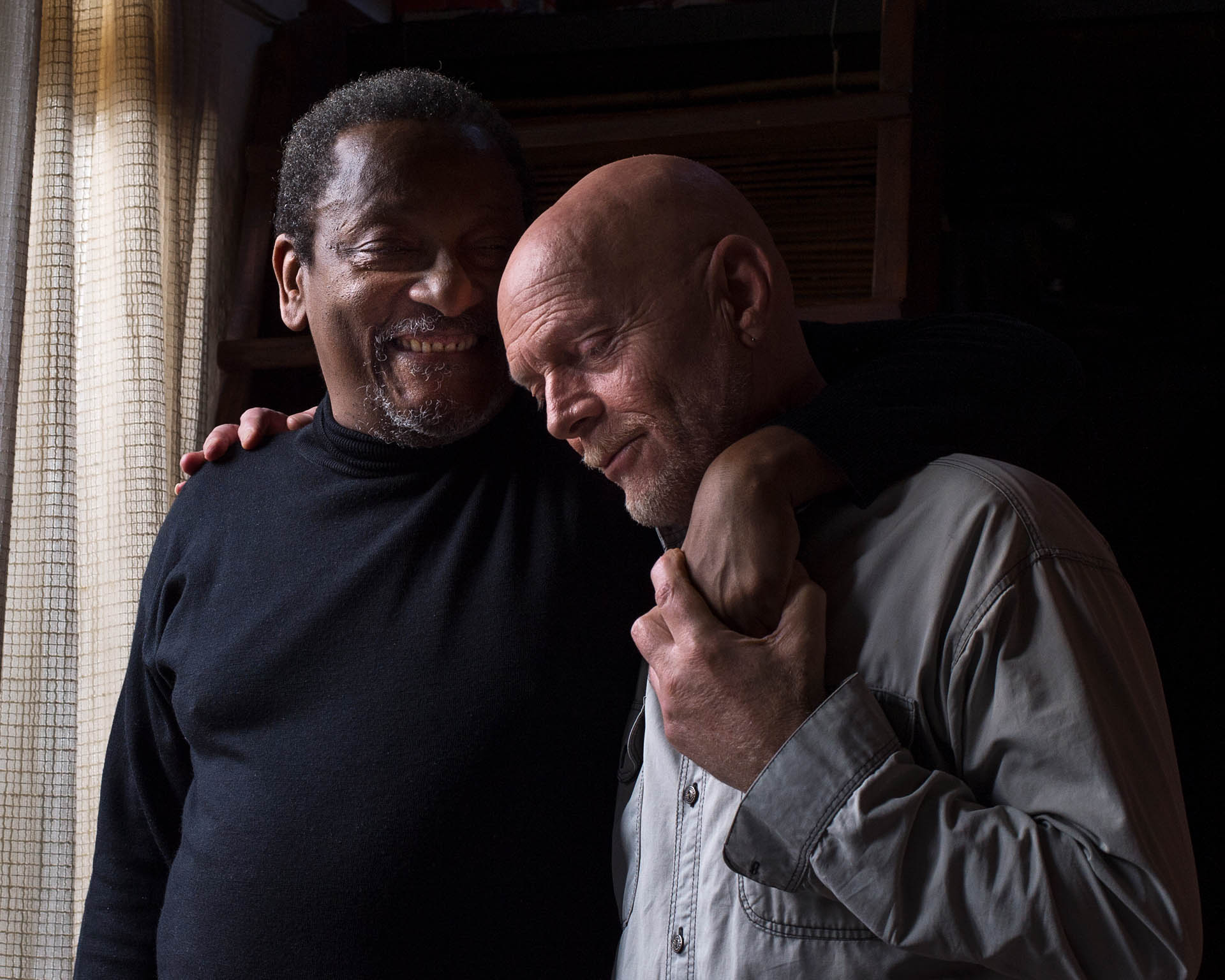
Victor and Gianni have been a couple for 43 years. Victor is an American who came to Italy in 1975 during his university years. Shortly after arriving, he met Gianni through shared friends. It was true love, but Victor is American and couldn’t stay long in Italy. So, Gianni’s mother decided to adopt Victor in order to help her son to start a family. However, this family can’t be made official today with a civil union because Gianni and Victor are brothers from a legal point of view.
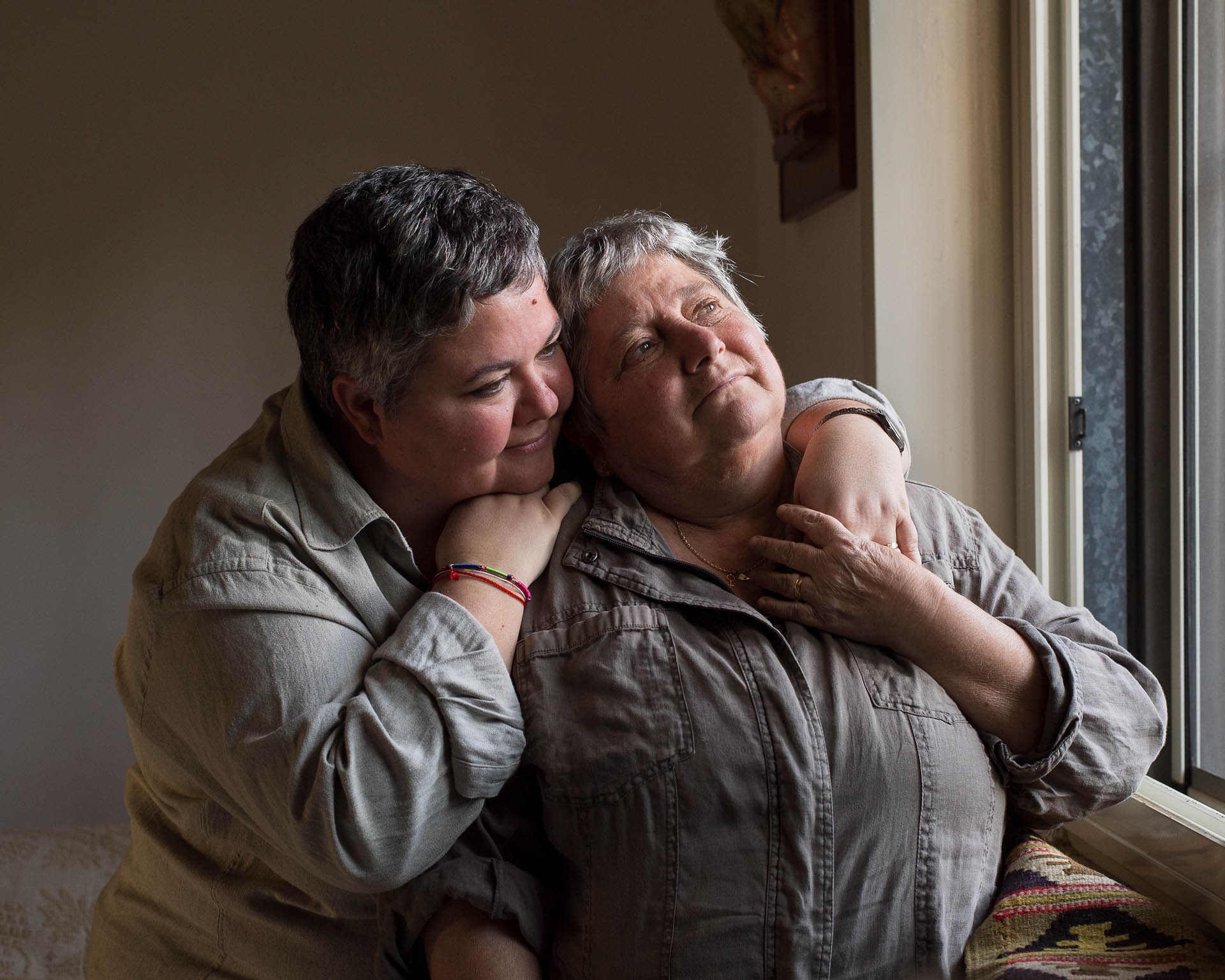
Lara and Lia met online in 2009, in the field of lesbian feminism activism. Lia is a retired restorer from Catania; Lara was born in Africa to her Italian father and English mother, but she was raised in Rome. She is a journalist who deals with scientific dissemination. They live in a small villa in Nicolosi where they divide their lives between their passion for gardening and their love for their pets. They are avid activists who never miss Pride.
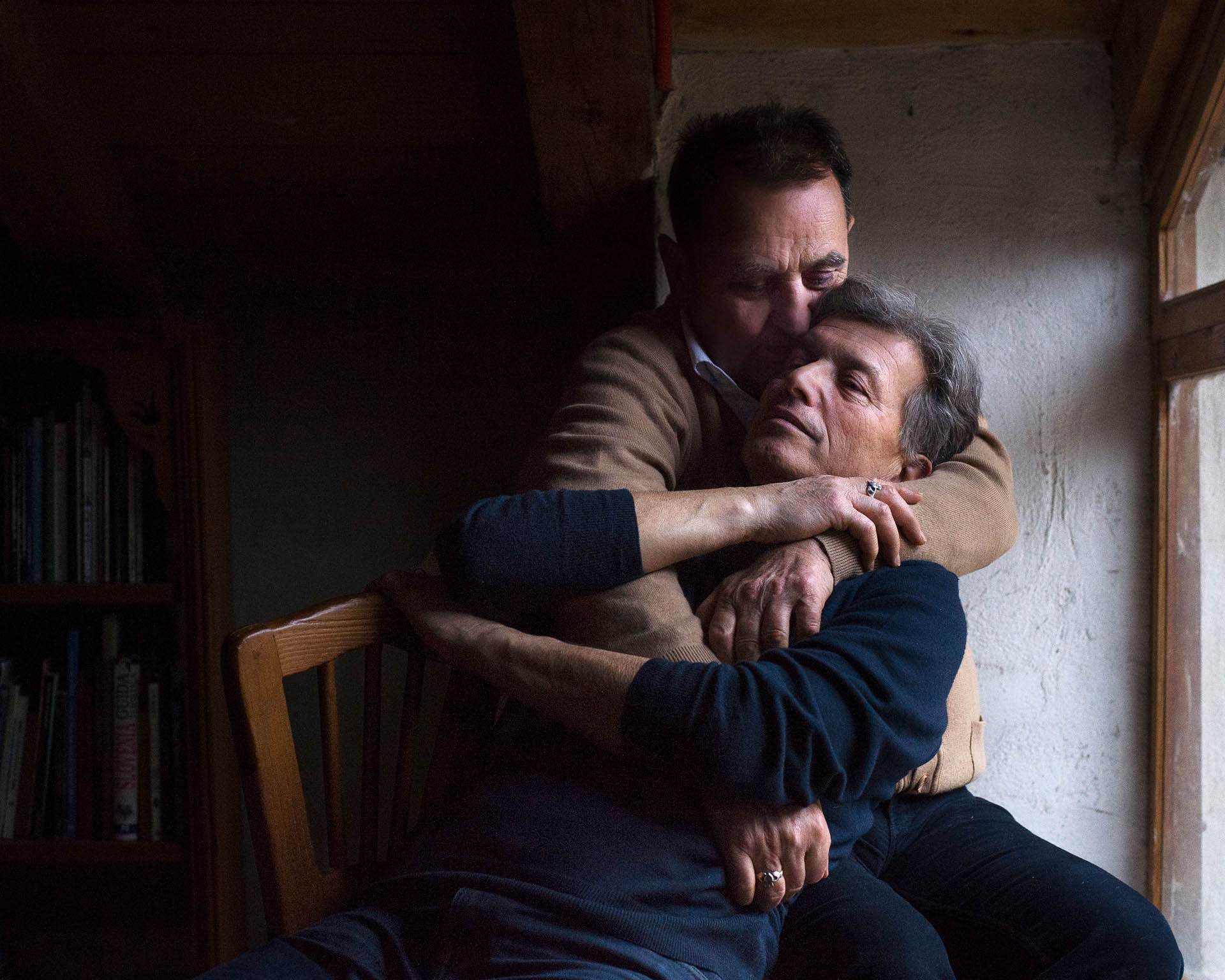
William and Vittorino are a couple who have been together for 47 years. Both of them came out at a very young age, and immediately after, they started to actively participate in the LGBT movement. Over the years, they have never missed the Pride Festival and they have travelled all over the world. They live in Trent, where they have been working for over 20 years as antiquarians, and they were married in a civil union.
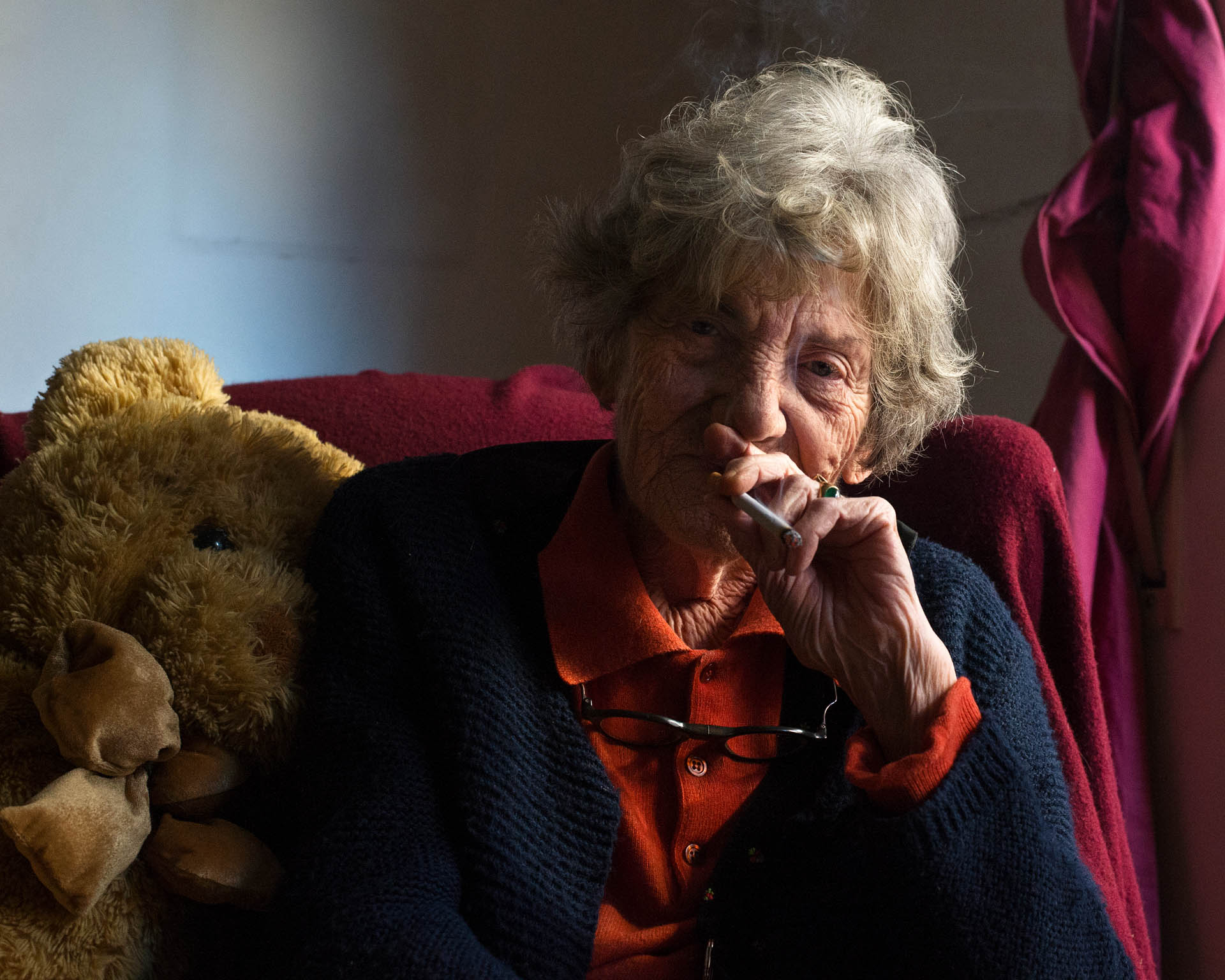
Edda was born in Follonica, in the coastal area of Maremma. She was a teenager when she fell in love with an older girl who drove a jeep and loved poetry and literature. It was this young woman who introduced Edda to the world of books and culture, and she was also Edda’s first love. The pressure that Edda’s family put on her because of her sexual orientation lead her to move to Rome. She has become an emancipated woman: a poet, an activist with the separatist feminist movement, and one of the first occupants of the Casa delle Donne (a political and cultural centre created by women for women, in Rome). Even today, Edda refers to herself as being in love with women and with life.



